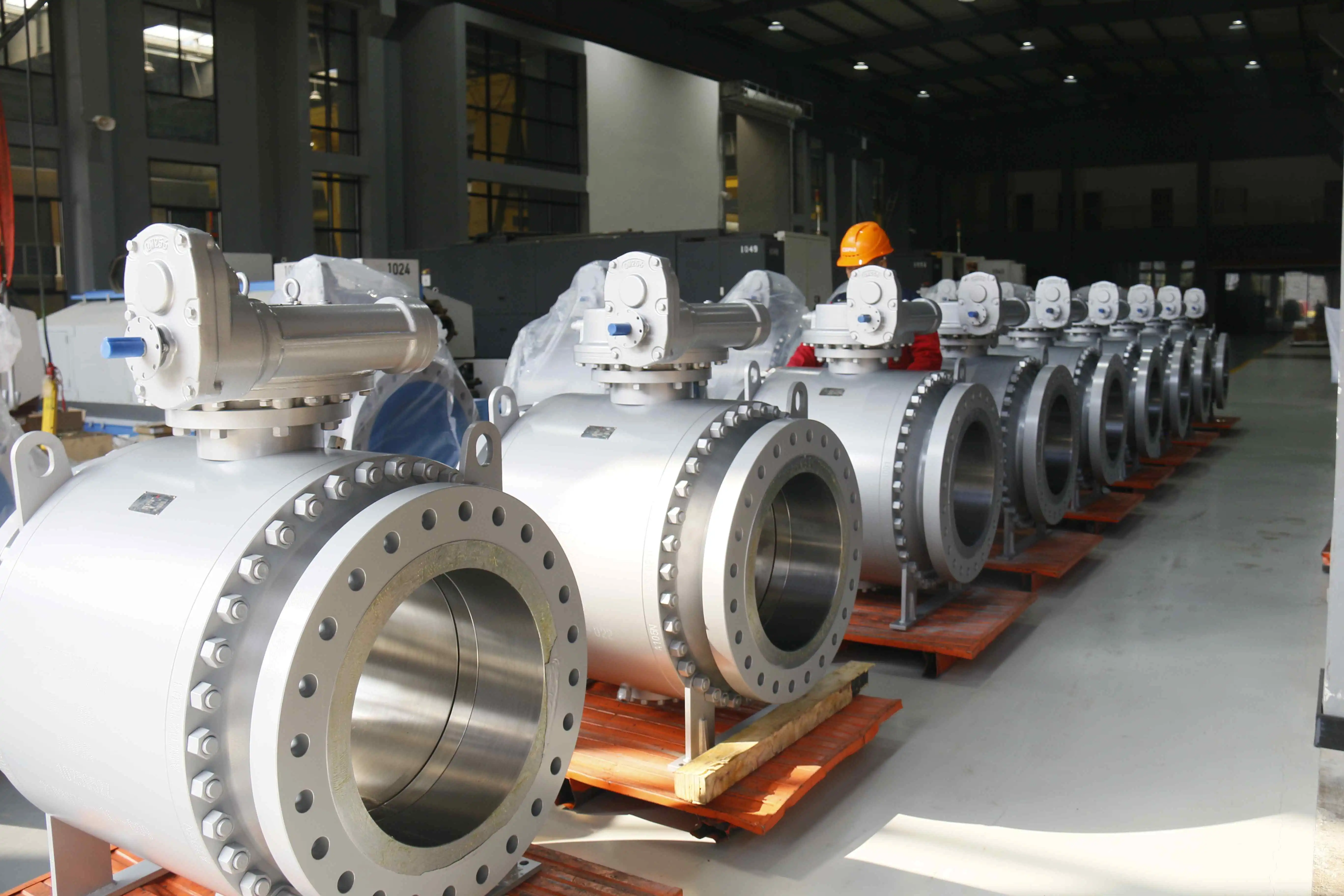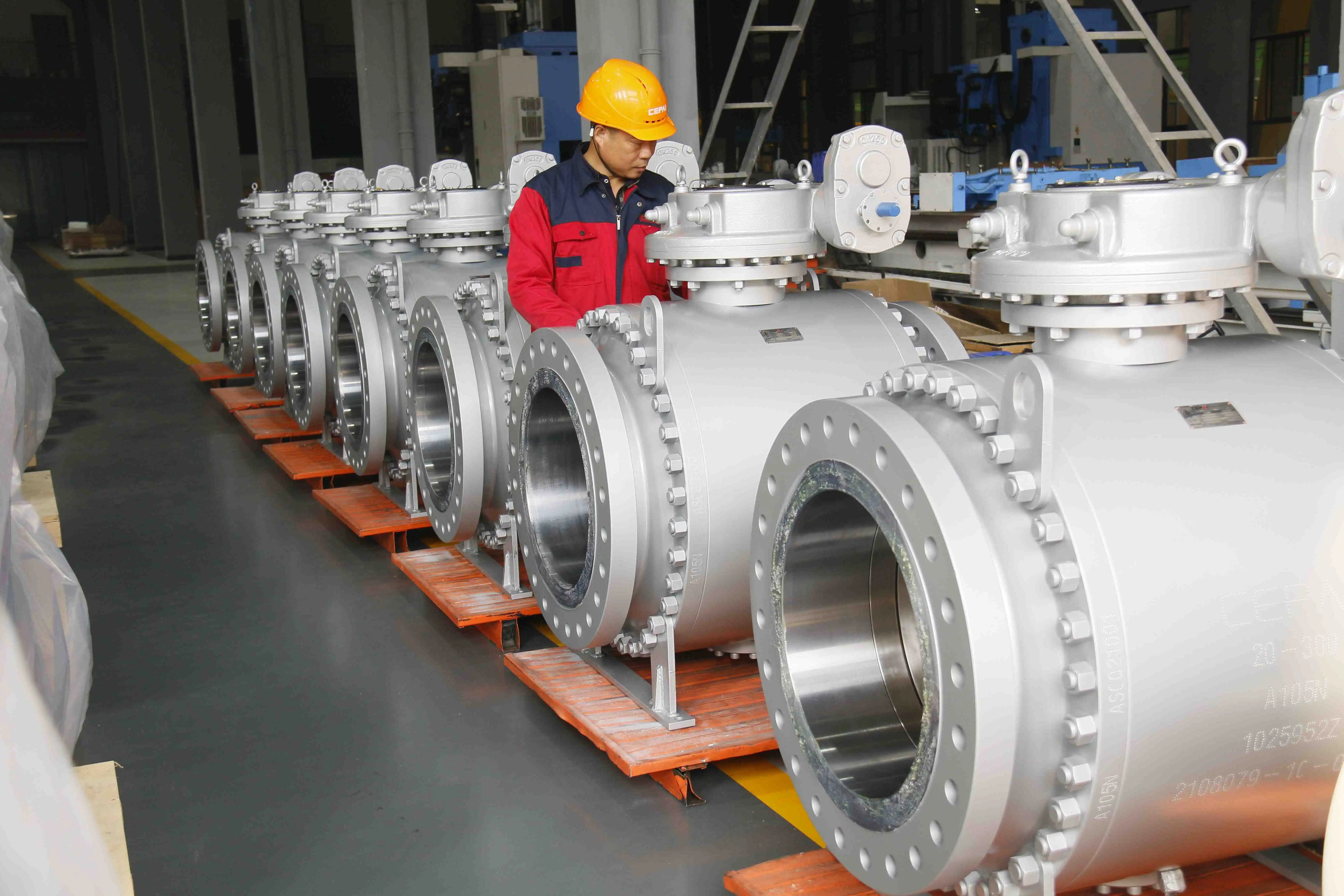Motorized Ball Valves: Key Benefits for Automated Manufacturing
In today's rapidly evolving industrial landscape, automated manufacturing systems demand precise, reliable, and efficient flow control solutions. Motorized ball valves have emerged as a cornerstone technology in modern automated manufacturing, offering unparalleled benefits that transform how industries manage fluid control processes. These electrically actuated valves combine the robust design of traditional ball valves with advanced automation capabilities, delivering exceptional performance across diverse manufacturing applications. As industries increasingly adopt Industry 4.0 principles, motorized ball valves provide the intelligent flow control foundation necessary for achieving operational excellence, enhanced productivity, and seamless integration with digital manufacturing ecosystems.

Enhanced Precision and Control in Manufacturing Processes
Real-Time Flow Regulation Capabilities
Modern manufacturing demands precise control over fluid flow parameters, and motorized ball valves excel in delivering accurate, real-time regulation capabilities. These valves offer advantages like fast response times, tight shutoff, and remote control capabilities, making them indispensable for critical manufacturing processes. The electric actuators in motorized ball valves provide consistent torque and positioning accuracy, enabling manufacturers to maintain optimal flow rates within extremely tight tolerances. Unlike manual valves that rely on operator intervention, motorized ball valves respond instantaneously to control signals, ensuring that manufacturing processes maintain consistent quality standards. The pressure-balanced valve core design, commonly found in high-end motorized ball valves, eliminates the effects of differential pressure on valve positioning, guaranteeing accurate flow control even under varying system conditions. This precision is particularly crucial in pharmaceutical manufacturing, chemical processing, and food production where even minor deviations in flow rates can compromise product quality or safety standards.
Advanced Feedback and Monitoring Systems
The integration of sophisticated feedback mechanisms sets motorized ball valves apart from conventional flow control solutions. Modern motorized ball valves incorporate 4-20mA signal feedback systems that provide real-time position and flow data to central control systems. This continuous monitoring capability enables predictive maintenance strategies, reducing unexpected downtime and optimizing maintenance schedules. Manufacturing facilities can implement comprehensive data analytics to identify trends, optimize performance, and prevent costly equipment failures. The feedback systems also enable closed-loop control algorithms that automatically adjust valve positions based on changing process conditions, ensuring consistent product quality and reducing material waste. These monitoring capabilities are essential for compliance with stringent quality standards in industries such as aerospace, automotive, and medical device manufacturing.
Programmable Operation Parameters
The programmability of motorized ball valves revolutionizes how manufacturing facilities approach process control. Engineers can configure valve operation parameters including opening and closing speeds, fail-safe positions, and response characteristics to match specific process requirements. This flexibility allows manufacturers to optimize valve performance for different products or process conditions without physical modifications. Motorized ball valves offer significant operational benefits such as programmability and ease of installation, making them suitable for industrial use in automated systems. The ability to store multiple operating profiles enables rapid changeovers between different production runs, reducing setup times and increasing overall equipment effectiveness. Advanced motorized ball valves can execute complex valve sequencing operations, coordinating with other system components to achieve precise process control that would be impossible with manual valves.
Operational Efficiency and Cost Reduction Benefits
Reduced Labor Requirements and Human Error
Automation through motorized ball valves significantly reduces the need for manual intervention in manufacturing processes, leading to substantial labor cost savings and improved safety outcomes. Traditional manual valve operations require skilled technicians to monitor and adjust flow rates throughout production cycles, creating opportunities for human error and inconsistent results. Motorized ball valves eliminate these concerns by providing automated, repeatable valve operations that maintain consistent performance regardless of shift changes or operator experience levels. The reduction in manual valve operations also decreases workplace safety risks, particularly in hazardous environments involving high temperatures, toxic chemicals, or high-pressure systems. Manufacturing facilities can reallocate human resources to higher-value activities such as quality control, process optimization, and equipment maintenance, improving overall operational efficiency and employee satisfaction.
Energy Efficiency and Sustainability
Modern motorized ball valves contribute significantly to energy conservation and environmental sustainability in manufacturing operations. The precise flow control capabilities minimize energy waste by ensuring that pumps, compressors, and heating systems operate at optimal efficiency levels. Electric actuators consume minimal power during steady-state operations, drawing energy only during valve positioning movements. This contrasts sharply with pneumatic systems that require continuous air supply and often experience energy losses through leakage. Advanced motorized ball valves incorporate intelligent power management features that further reduce energy consumption, contributing to corporate sustainability goals and reducing operational costs. The improved process control also minimizes material waste, chemical consumption, and water usage, supporting circular economy principles and environmental compliance requirements.
Predictive Maintenance and Lifecycle Management
The sophisticated monitoring capabilities of motorized ball valves enable comprehensive predictive maintenance strategies that significantly reduce total cost of ownership. Continuous monitoring of actuator performance, valve position accuracy, and operating parameters provides early warning indicators of potential maintenance needs. This proactive approach prevents unexpected failures, reduces emergency repair costs, and extends equipment lifespan. Manufacturing facilities can optimize maintenance schedules based on actual usage data rather than arbitrary time intervals, reducing unnecessary maintenance activities while ensuring reliable operation. The ability to track valve performance over time enables data-driven decisions about equipment replacement, helping manufacturers optimize capital expenditure planning and maintain competitive advantage through improved asset management.
Integration with Smart Manufacturing Systems
Industry 4.0 Compatibility and IoT Integration
Motorized ball valves serve as critical components in Industry 4.0 manufacturing environments, providing seamless integration with Internet of Things (IoT) platforms and digital manufacturing systems. These valves can communicate with enterprise resource planning (ERP) systems, manufacturing execution systems (MES), and supervisory control and data acquisition (SCADA) platforms, enabling comprehensive process visibility and control. Automation remains a game changer across different industrial applications, offering precise control, remote system control and management, enhanced maintenance, better system visibility and improved feedback analysis. The digital communication capabilities enable real-time data exchange between valve systems and cloud-based analytics platforms, supporting advanced manufacturing concepts such as digital twins and predictive analytics. This connectivity facilitates remote monitoring and control capabilities, allowing manufacturing engineers to optimize processes from centralized control rooms or even remote locations.
Seamless Integration with Control Systems
The compatibility of motorized ball valves with various control protocols ensures smooth integration with existing manufacturing infrastructure. These valves support multiple communication standards including Modbus, Profibus, Foundation Fieldbus, and Ethernet-based protocols, eliminating compatibility concerns when upgrading existing systems. The standardized control interfaces simplify system design and reduce implementation costs, while providing flexibility for future system expansions or modifications. Manufacturing facilities can implement centralized control strategies that coordinate valve operations with other automated equipment, optimizing overall system performance and reducing operational complexity. The ability to integrate with programmable logic controllers (PLCs) and distributed control systems (DCS) enables sophisticated control algorithms that respond dynamically to changing process conditions.
Advanced Diagnostics and System Optimization
Modern motorized ball valves incorporate comprehensive diagnostic capabilities that enhance overall manufacturing system performance. Built-in sensors monitor actuator health, valve position accuracy, and operating conditions, providing valuable data for system optimization. These diagnostic systems can detect issues such as actuator wear, seal degradation, or control signal problems before they impact production operations. The diagnostic information integrates with manufacturing execution systems to provide comprehensive equipment health monitoring and performance analytics. This capability enables continuous improvement initiatives that optimize valve selection, sizing, and operating parameters based on actual performance data. Manufacturing facilities can use this information to benchmark performance across multiple production lines, identify best practices, and implement standardized optimization strategies.

Conclusion
Motorized ball valves represent a transformative technology for automated manufacturing, delivering enhanced precision, operational efficiency, and seamless integration with smart manufacturing systems. These advanced flow control solutions enable manufacturers to achieve higher productivity, improved product quality, and reduced operational costs while supporting sustainability initiatives and Industry 4.0 objectives. The combination of precise control capabilities, energy efficiency, and comprehensive monitoring features makes motorized ball valves essential components for competitive manufacturing operations.
CEPAI Group Co., Ltd. stands at the forefront of motorized ball valve innovation, leveraging over 15 years of expertise in high-end valve manufacturing and intelligent production systems. As a leading China Motorized Ball Valves manufacturer, CEPAI combines advanced engineering capabilities with comprehensive quality management systems to deliver exceptional products for automated manufacturing applications. Our position as a trusted China Motorized Ball Valves supplier is reinforced by extensive industry certifications and partnerships with major petroleum, chemical, and power generation companies. Whether you're seeking a reliable China Motorized Ball Valves factory for large-scale procurement or exploring China Motorized Ball Valves wholesale opportunities, CEPAI offers comprehensive solutions tailored to your specific requirements. Our High Quality Motorized Ball Valves for sale feature cutting-edge technology, superior materials, and competitive Motorized Ball Valves price points that deliver exceptional value for automated manufacturing investments. Contact our technical experts today at cepai@cepai.com to discover how CEPAI's motorized ball valve solutions can optimize your manufacturing operations and drive competitive advantage in your industry.
References
1. "Advanced Control Strategies for Industrial Ball Valves in Process Automation" - International Journal of Process Control Engineering, Smith, J.R. and Anderson, M.K.
2. "Energy Efficiency in Automated Manufacturing: The Role of Smart Valve Technology" - Manufacturing Technology Review, Chen, L.W. and Roberts, P.D.
3. "Integration of Motorized Valves in Industry 4.0 Manufacturing Systems" - Automation Engineering Quarterly, Thompson, A.S. and Williams, R.J.
4. "Predictive Maintenance Strategies for Industrial Valve Systems" - Maintenance Engineering International, Davis, M.R. and Johnson, K.L.
_1746598568348.webp)
Get professional pre-sales technical consultation and valve selection services, customized solution services.

About CEPAI


